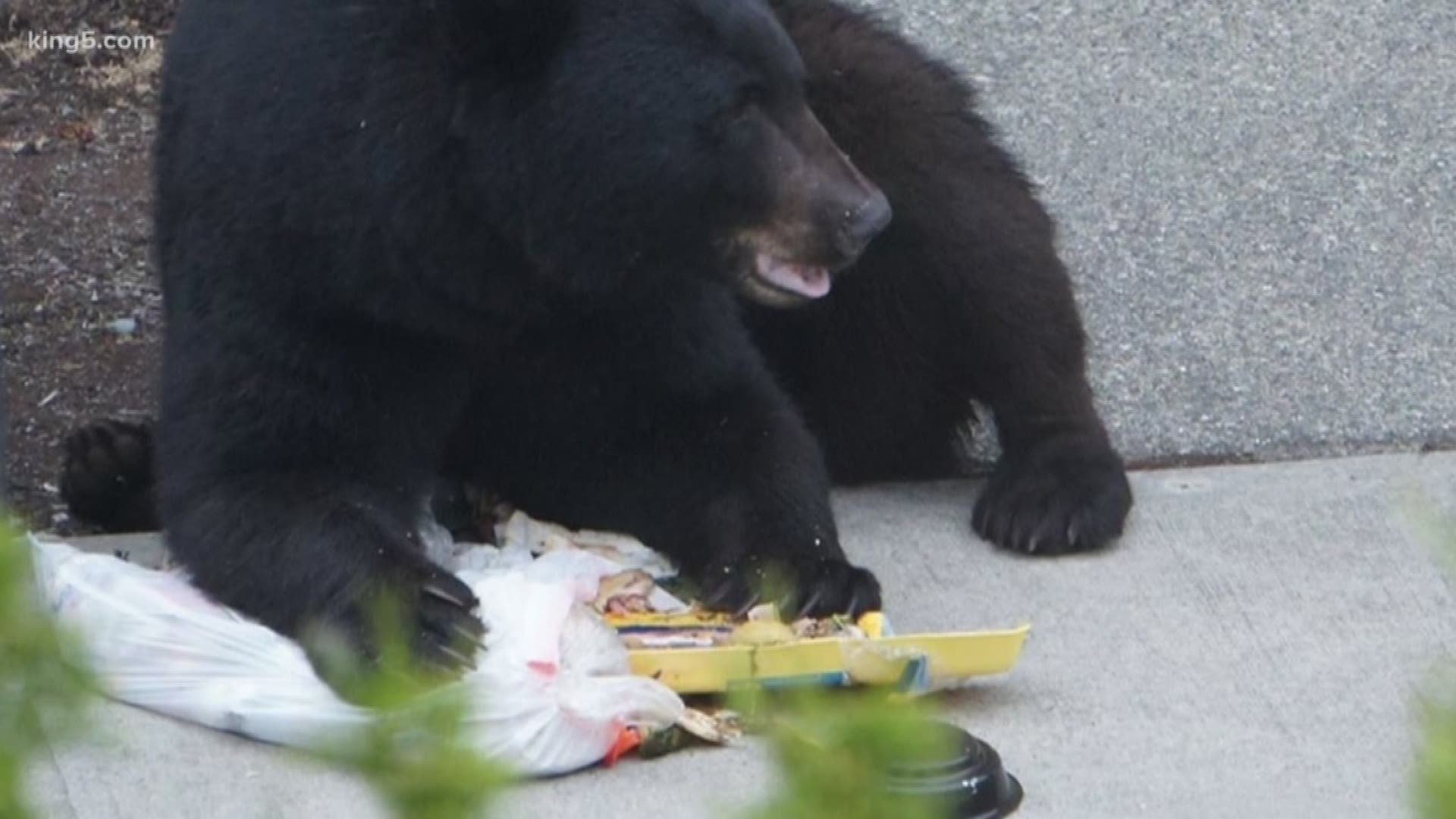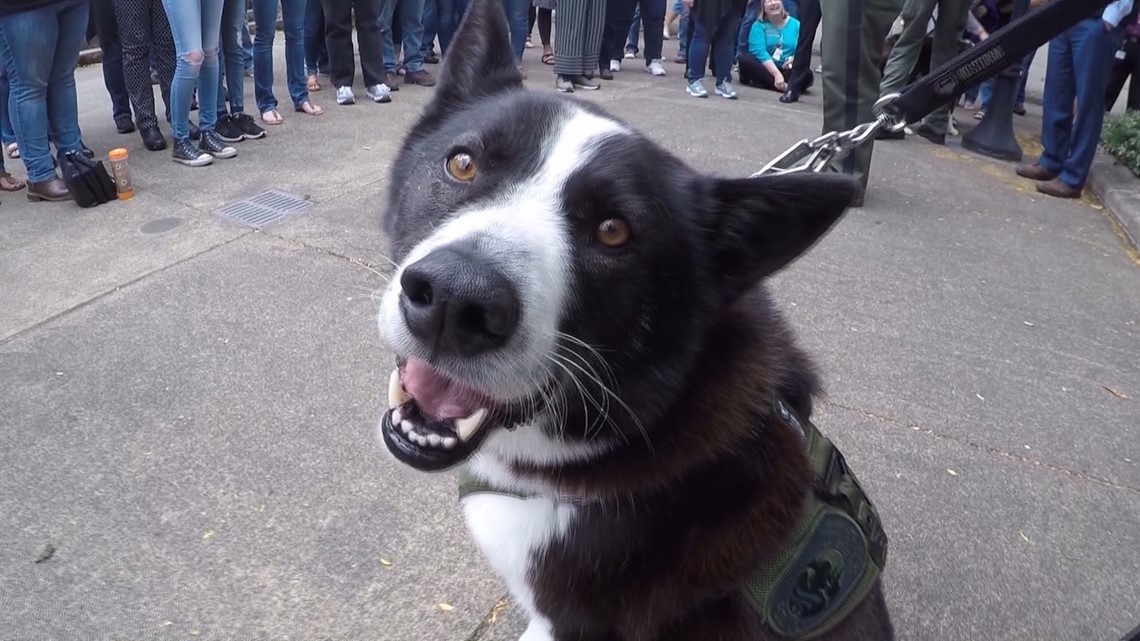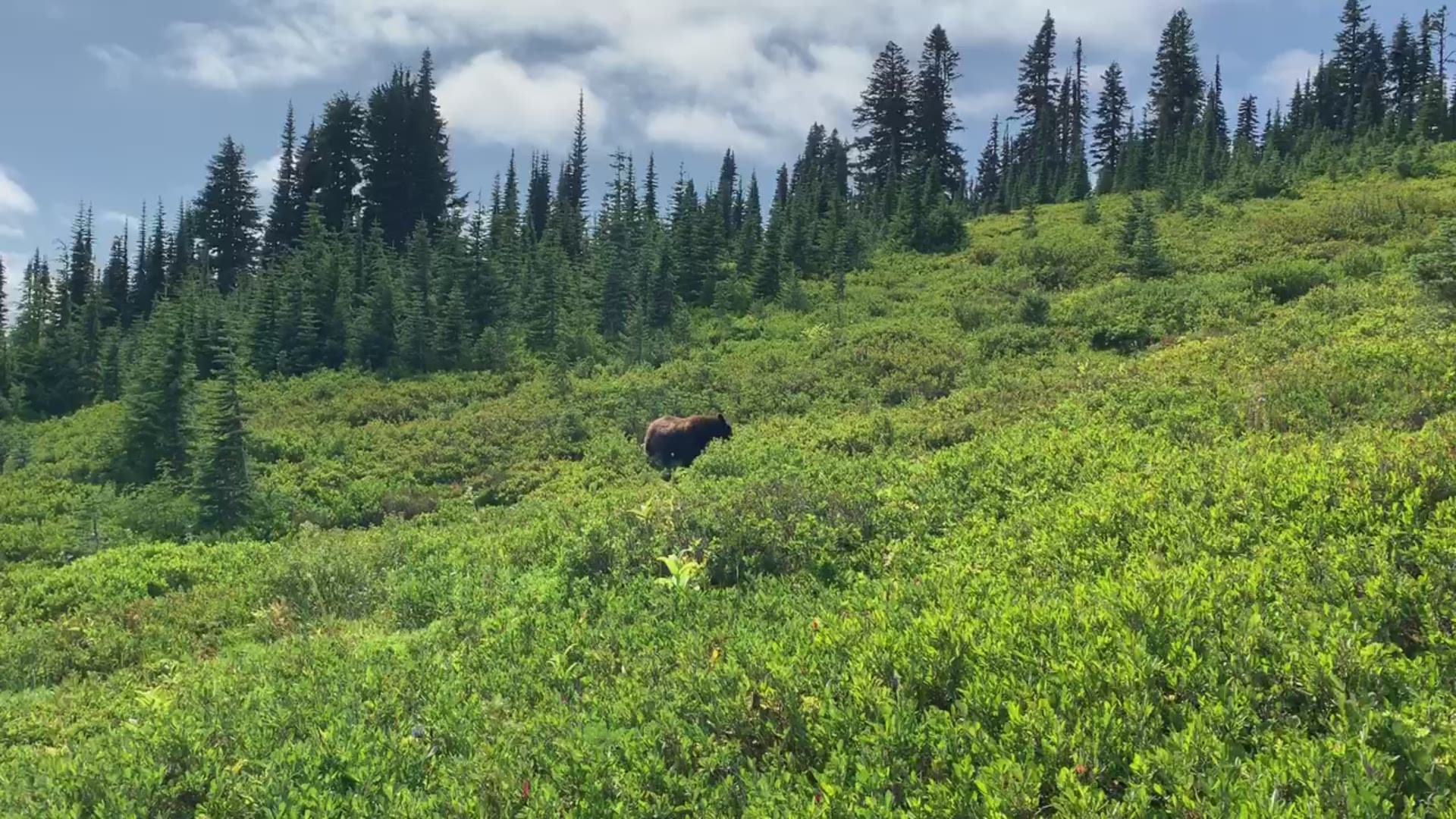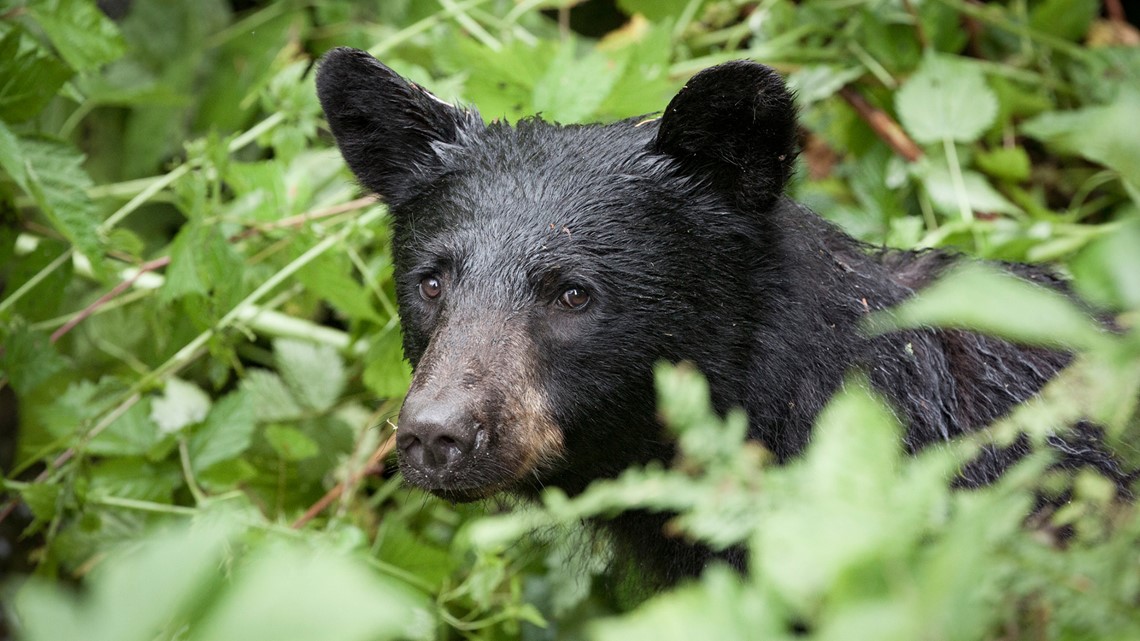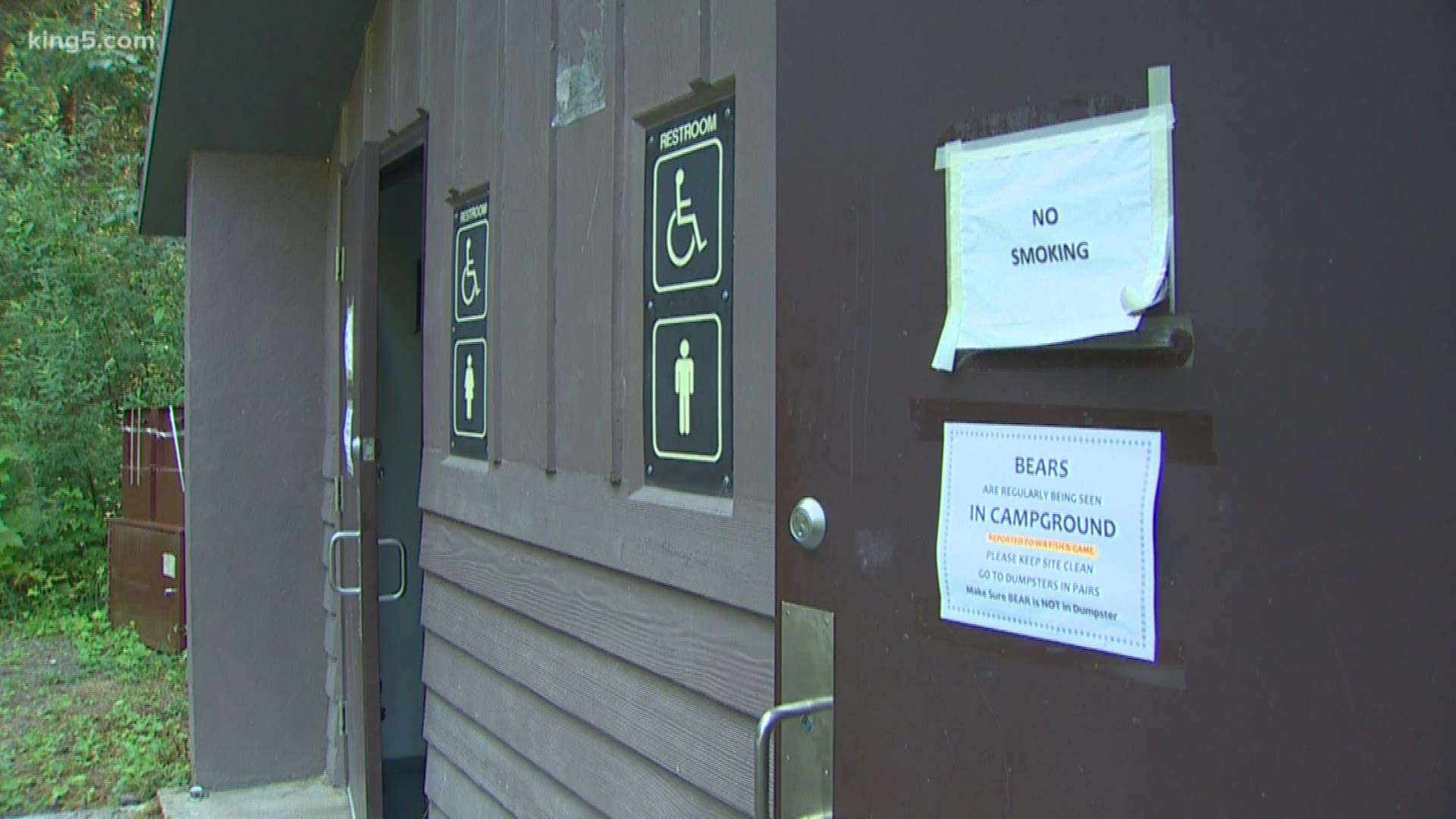MARBLEMOUNT, Wash. — Bear incidents are on the rise at the North Cascades National Park and wildlife officials are out on trails warning hikers and campers.
"We are reliant on the public to provide those different encounters — and what we have seen in previous years of one to two times a year, we are seeing encounters one to two times a week," said National Park Service Ranger Katy Hooper.
Bears are biting into backpacks, water bottles and even fuel containers, Hooper says.
"Bears need a lot of calories and they learn to go get easy calories and if people leave food or attractants out like petroleum products, like water bottles, any food or toiletry items, they see that as an easy way to gather calories," Hooper said.
The National Park Service (NPS) is partnering with the Washington Department of Fish & Wildlife to hike popular trails and warn campers. NPS is also bringing in bear-resistant waste cans which are normally not found in the backcountry.
It's important to secure all attractants in bear-resistant containers and keep them outside your tent and away from any campsite, Hooper says.
"If people train bears to associate people and people-things with food, that is going to change a bear's behavior and make the bear slowly more dangerous," said WDFW Enforcement Officer Nick Jorg.
Jorg works with his K9 partners, Coulter and Freija, who are Karelian bear dogs that scare bears by chasing them away from sites of human activity in hopes the bears won't return.
When bears grow accustomed to humans, it's risky for both the bears and humans, Jorg says.
"It is going to make people uncomfortable and the bears uncomfortable to the point where a situation could arise where we would have to unfortunately euthanize a bear and kill bears," Jorg said. "It is really unfair to the other campers if this happens."
Bear sightings have increased across Washington state, not just the North Cascades National Park.
See more environmental stories from KING 5's Alison Morrow

